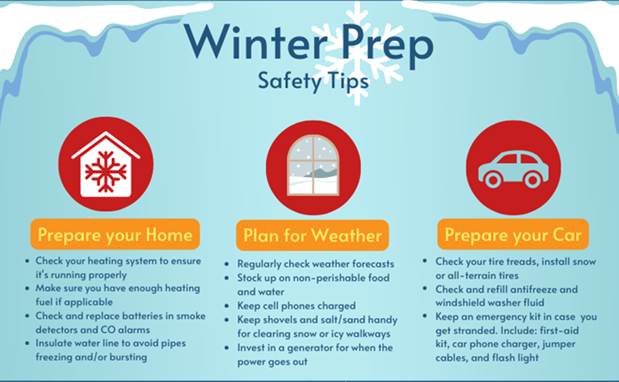Shared with TASS by Donna Occhipinti| Director of Communications
Visiting Physician Services
Parker Advanced Care Institute at VNA Health Group
As the colder months settle in, the risk of respiratory illnesses, particularly among seniors, becomes a significant concern. Cold weather, coupled with dry indoor air and increased exposure to viruses, poses challenges for the respiratory health of older adults.
Protecting seniors from respiratory ailments demands proactive measures and thoughtful care. Below are essential tips for safeguarding your senior loved one against respiratory illnesses during cold weather.
Maintain a Warm and Humid Environment
Make sure that indoor areas are comfortably warm, as chilly temperatures can exacerbate respiratory issues. Aim for a consistent and moderate temperature throughout the home. While ideal temperatures are largely based on individual preference, 68 to 70 degrees is recommended for older adults.
You can also combat dry indoor air by using humidifiers, especially in the bedroom. Moist air helps ease breathing, soothes irritated airways and reduces the risk of respiratory infections. If you do purchase a humidifier, make sure that you maintain it. Humidifiers can make you sick if they’re not cleaned regularly.
Encourage Good Hygiene Practices
There is no substitute to regular handwashing, especially before meals and after outdoor activities. Proper hand hygiene minimizes the spread of viruses and bacteria. Make sure your loved one is washing with soap and water for 20 seconds.
You should also encourage your loved one (and others around you!) to cover their mouth when coughing or sneezing with a tissue or their elbow to prevent the spread of respiratory droplets. Getting in the habit of doing this can prevent viruses from spreading to other people.
Ensure Adequate Nutrition and Hydration
Support a healthy immune system by encouraging your loved one to eat a well-balanced diet rich in fruits, vegetables, lean proteins and whole grains. They should also be drinking sufficient fluids throughout the day to keep the airways moist and clear mucus naturally.
When proper nutrition and hydration are combined with other healthy lifestyle factors, such as exercise and regular sleep, the body is better able to fight infection and disease.
Promote Indoor Air Quality
Allow fresh air circulation by opening windows briefly, as long as the weather allows you to do so. Proper ventilation helps reduce indoor air pollutants and improve overall air quality.
Some seniors choose to keep an air purifier in their bedroom or work office, while others install a home system. Just be sure that the air purifier is regularly maintained. Replacing air filters, for instance, prevents the circulation of dust, allergens and other airborne particles.
Prioritize Medical Care and Vaccination
Seniors should schedule routine medical check-ups to monitor their respiratory health and address any emerging concerns promptly. Also, speak with your loved one’s doctor to see which vaccinations they’re due for, including flu shots, RSV shots and pneumonia vaccines. These vaccinations provide added protection against respiratory infections.
Practice Cold Weather Safety
Encourage your loved one to dress in warm layers when heading outdoors. Protecting against the cold prevents respiratory stress caused by sudden temperature changes. Also, minimize outdoor activities during extreme cold or inclement weather to reduce the risk of respiratory distress. There are safer activities you can invite Grandma to!
Protecting seniors from respiratory illnesses during cold weather requires a proactive approach. By following the tips above, you can help safeguard your loved one’s respiratory health, ensuring they stay safe and comfortable in cold temperatures.
